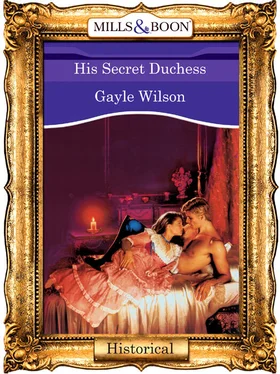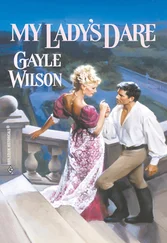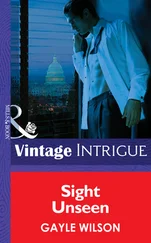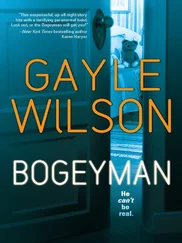Gayle Wilson - His Secret Duchess
Здесь есть возможность читать онлайн «Gayle Wilson - His Secret Duchess» — ознакомительный отрывок электронной книги совершенно бесплатно, а после прочтения отрывка купить полную версию. В некоторых случаях можно слушать аудио, скачать через торрент в формате fb2 и присутствует краткое содержание. Жанр: Историческая проза, foreign_contemporary, Исторические любовные романы, на русском языке. Описание произведения, (предисловие) а так же отзывы посетителей доступны на портале библиотеки ЛибКат.
- Название:His Secret Duchess
- Автор:
- Жанр:
- Год:неизвестен
- ISBN:нет данных
- Рейтинг книги:4 / 5. Голосов: 1
-
Избранное:Добавить в избранное
- Отзывы:
-
Ваша оценка:
- 80
- 1
- 2
- 3
- 4
- 5
His Secret Duchess: краткое содержание, описание и аннотация
Предлагаем к чтению аннотацию, описание, краткое содержание или предисловие (зависит от того, что написал сам автор книги «His Secret Duchess»). Если вы не нашли необходимую информацию о книге — напишите в комментариях, мы постараемся отыскать её.
His Secret Duchess — читать онлайн ознакомительный отрывок
Ниже представлен текст книги, разбитый по страницам. Система сохранения места последней прочитанной страницы, позволяет с удобством читать онлайн бесплатно книгу «His Secret Duchess», без необходимости каждый раз заново искать на чём Вы остановились. Поставьте закладку, и сможете в любой момент перейти на страницу, на которой закончили чтение.
Интервал:
Закладка:
Chapter One
February 1822
“When will my father be home?” the child asked, carefully placing the wooden soldier, brightly painted with the smart blue-and-red uniform of the Royal Horse Guards, back in its box.
The woman seated in a chair turned to the window in order to catch the fading light of the winter afternoon looked up from her embroidery to watch the childish fingers complete the task. Although she failed to ply her needle again, Mary Winters’s eyes returned to the piece she was working on before she answered.
“Perhaps tonight. Depending on the state of the roads.”
“I wish he might bring me another soldier,” the child said, almost plaintively.
“If wishes were horses…” Mary reminded him softly, looking up to smile at him.
The boy finished the familiar admonition. “Then beggars might ride.”
He should certainly have known that was a fruitless wish, Mary thought. His father had never brought home any prèsent for the child after one of his numerous business trips. She herself had given him the toy soldier.
She was twenty-five, long past the first bloom of youth, serenely handsome rather than pretty. Her coloring was not fashionable, and she was too slender for the current mode that demanded softly rounded curves. The glowing dark curls were severely restrained, hidden under the lace cap she habitually wore.
Her dress of brown serge was free of decoration, deliberately fitting loosely over her body. Only the blue eyes would have found favor with the fashionable world she had no desire to enter. Her feet were firmly grounded on country soil, and she no longer dreamed of any other existence. And if once she had…
Resolutely Mary banished memory and took up her needle. If only the light would last a little longer, she could finish the mending today, she thought. She had gotten a great deal of it done. The household ran more smoothly when its master wasn’t home. She and the boy were content to sit before the warmth of the winter fire and talk, tell stories or discuss the past summer’s exploits. There were no demands. No uncomfortable tensions. No arguments.
Her eyes lifted again to the child’s small head, lowered over his toy. They closed briefly, dreading the renewal of the arguments. There seemed to be nothing she could say to convince the man whose arrival they awaited that what he’d suggested could never be. She shivered suddenly and, although the room was not chilled, she pulled the soft warmth of the woolen shawl more closely around her shoulders. Unconsciously, she sighed, and the boy looked up at the sound, the soft, childish lips moving into his beautiful smile.
“What’s wrong?” he asked, his slate-gray eyes resting on hers.
“I’m losing the light,” she said.
His eyes fell, his fingers touching the gilt paint that had been applied over the blue of the soldier’s uniform.
“You don’t like him here,” he said. “You haven’t wanted him here since my mother died.”
The realization that he so clearly understood her feelings took her unawares, and Mary hesitated, trying to think how to answer. At the continued silence, the gray eyes lifted again.
“It’s all right,” he said, forgivingly. “Sometimes I don’t want him here.”
She knew the times he meant. The discipline was harsh, but the man argued that much was expected of his son, and so he must be taught to be above reproach. Knowing her protests only made it worse, Mary had bitten her tongue to blood the last time, although the boy hadn’t made a sound under the repeated blows of the small cane.
“You mustn’t say that,” she corrected, laying down the needlework and allowing herself to place a hand on the down-fine softness of the child’s hair. “He’s your father. And you must love him.” Her voice had softened to a whisper, but the child’s eyes never left her face. “Do you understand?” she asked when he didn’t respond.
The gray eyes fell, back to the toy his hands still rested against. The small shoulders heaved with the depth of his sigh, but he said nothing else.
“I think it’s time for tea,” Mary said, making her voice strong and pleasant “Are you hungry?” She waited, unsmiling, her eyes on the downcast head until finally he nodded. “Good,” she said, rising. “So am L I think that as a treat we shall have currant scones and cream.”
The childish fingers brushed again along the wooden figure. The light from the fire played over the boy’s curls, touching them with the same gold the painted soldier wore so proudly.
It was long after dark when the master of the house returned. Mary had forced herself to wait up, keeping the fire in the parlor alive and the lamps lit. Unkindness was not in her nature, and no traveler should be forced to return to a cold, dark house in the dead of a winter’s night. She had no wish to see him, no wish to greet the man whose arrivals she had grown to dread more and more with each passing week.
Marcus Traywick was a merchant, successful, certainly, by the standards of the district in which his sturdy brick house stood. He had ordered the dwelling built to his own specifications, untrusting of the architect he had sent to London for. There was, therefore, nothing of the aesthetic about the structure, but simply the same stolidness and lack of imagination that colored the character of the man whose home it was.
It was Mary who unlatched the heavy oak door and let him in. No other servant slept within the house. Traywick employed a man to tend to the coarser tasks demanded by the household, a grizzled veteran whose military service had returned him to the village missing an arm and who was pathetically grateful for the job.
Mary suspected Bob Smithers’s employment was the result of neither kindness nor patriotism on the part of her employer, but rather the realization that given the exsoldier’s impairment, the merchant could more easily justify the pittance he paid him. All other tasks fell to Mary Winters, who did them willingly, grateful still.
“A cold night, Mary,” Traywick said, brushing the snow off the top of his beaver, letting it fall to puddle on the gleaming boards of his entry hall. “It’s not fit out for man nor beast.”
Mary made no response as she helped him out of the greatcoat and hung it to dry on the hall stand. She had found in the long years she had spent here that there was no need for an answer. The merchant expected none, and if one made a response to the familiar comments, which were always the same or were said with some slight variation, it disturbed the even tenor of the homecoming. So she was silent, respecting what she had come to understand was merely ritual.
Divested of his outer garments, Traywick crossed the hall to the parlor and the warmth of its welcoming fire. Mary waited, watching from the doorway as he spread his broad hands before the cheerful blaze, their chilblained redness visible even in the shadowed room. He never wore gloves, often mocking the virility of those who did. “Simpering fops” was his most frequent sobriquet.
Although she never responded to his comments or made her own, Mary had come, through the years she worked for Traywick, to despise the vulgar coarseness of his hands. She had at first prayed for forgiveness for whatever was in her nature that would allow her to feel about his hands as she did.
Now she no longer bothered to seek divine intervention for this evidence of her ingratitude. She tried to ignore the feelings those rough, cracked fingers created in her mind, but sometimes she dreamed of his hands, seeing them in her nightmares as separate from the man himself, having their own almost animalistic life.
Clearing that ridiculous childishness from her mind, Mary waited until he had turned from the fire to face her before she asked, “Is there anything I can get for you, Mr. Traywick, before I retire?”
Читать дальшеИнтервал:
Закладка:
Похожие книги на «His Secret Duchess»
Представляем Вашему вниманию похожие книги на «His Secret Duchess» списком для выбора. Мы отобрали схожую по названию и смыслу литературу в надежде предоставить читателям больше вариантов отыскать новые, интересные, ещё непрочитанные произведения.
Обсуждение, отзывы о книге «His Secret Duchess» и просто собственные мнения читателей. Оставьте ваши комментарии, напишите, что Вы думаете о произведении, его смысле или главных героях. Укажите что конкретно понравилось, а что нет, и почему Вы так считаете.












